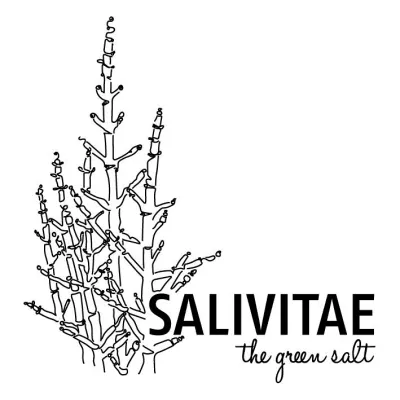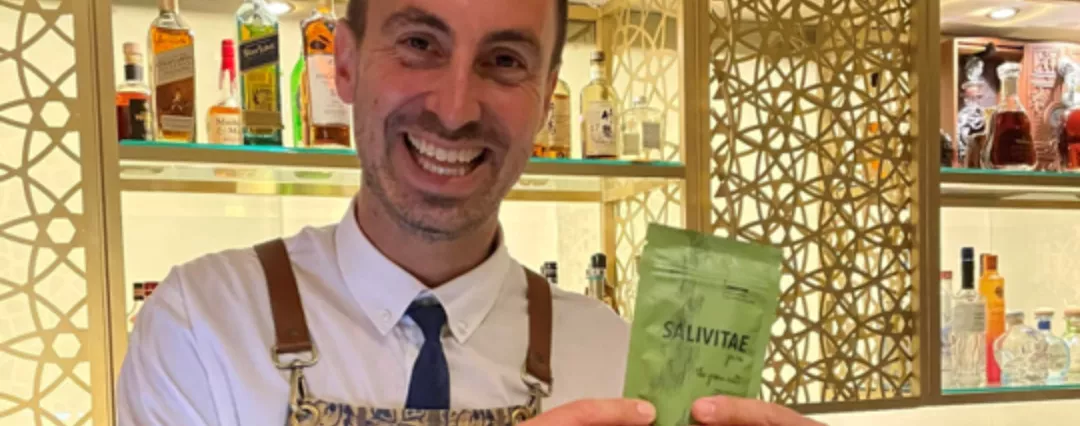General information
RDP Priority
- P2. Competitiveness
RDP Focus Area
- 2B: Entry of skilled/younger farmers
RDP Measure
- M06: Farm & business development
Beneficiary type
- Young farmer
Summary
The Salivitae project focused on regenerating land that had been abandoned due to high salination levels in the municipality of Portimão, southern Portugal. The two young project promoters aimed to develop an intensive production unit (4 600 m2 of greenhouses) for growing certified organic Salicornia europaea, a plant that tolerates high salinity levels in soil. Salicornia is a plant that is internationally in great demand, due to its high nutritional value and pharmaceutical potential.
The project operated on a fully sustainable basis, including the use of renewable energy, utilising reused water, composting, minimising the use of plastics, and using 100% of the plant matter produced.
The project collaborated with public and private stakeholders, as well as with schools and regional and national research centres that have supported its development, while creating positive networking effects across all participating professions.
The project achieved the economically and socially sustainable regeneration of abandoned land back into production.
Results
- Seven hectares of saline soil sustainably regenerated.
- 18% average increase of the farm’s annual income.
- The project enabled three trainees/students from professional courses to work on the farm and focus on the subject area.
- Seven landowners and local farmers expressed their interest in re-cultivating their degraded land.
- Positive contribution made to adaptation and resilience to climate change measures.

Promoter
Salivitae, lda
Funding
Total budget: 111 244 (EUR)
EAFRD: 41 717 (EUR)
National/Regional: 13 905 (EUR)
Private/own: 55 622 (EUR)
Ressourcen
Documents
Good Practice Report - Salivitae – Salicornia Production Unit
(PDF – 1.13 MB)
Links
Context
As a result of climate change, around 3 500 ha of previously fertile land has been abandoned in the Algarve region of Portugal, due to high salinity. A similar situation exists in Spain, where rising sea levels, decreasing freshwater availability, and salinisation of soils have caused approximately 600 000 ha to be abandoned.
Two young farmers (one qualified in communication and sustainability, the other in biology and management of coastal areas) identified a suitable adaptation solution by using the abandoned land for the intensive and organic production of halophytes, i.e. plants that tolerate salinity. The two farmers focused specifically on the production of Salicornia, a well-known halophyte, which is in considerable demand internationally due to its high potential as food, as well as for pharmaceutical purposes. For example, Salicornia can suitably replace salt with its reduced sodium content. It has a high concentration of vital minerals, contains 14% protein, and delivers dietary fibre. For medical purposes, the plant features a high concentration of polyphenols, which are important for the prevention and recovery of strokes / hiatus hernias.
The requirements for growing Salicornia are minimal in terms of its nutritional and irrigation needs. This makes the plant an appropriate crop for the south of the Iberian Peninsula, and more specifically for the Algarve region, which regularly suffers from extreme drought.
In the past, several studies and trials examined using integrated food systems with halophytes, but none of them focused on soil recovery, increasing farmers' input, tackling water shortages, or developing organic and zero waste production.
Objectives
The main objectives of the project were to recover agricultural land that was abandoned due to high salinisation, and to extensively and economically produce Salicornia europaea for the domestic market in the medium/long term. The overall aim was to generate additional income for farmers affected by the increasing salinity of their land and the absence of water for irrigation.
A further important objective was to achieve organic certification. The project sought to ensure sustainability and zero waste principles by using photovoltaic and self-produced energy, reusing water, composting land, minimal use of plastics, and utilising 100% of the plant matter produced (including the sale of fresh plants; drying and dehydrating plant material and then transforming it into green salt; and using the roots as animal feed).
Activities
From 2016 to 2018, the project involved an extensive testing period during which the following activities were implemented:
An initial test project was executed on a 4 500 m2 greenhouse site with high salinity soil levels for the purposes of controlling and measuring the circumstances that shape the development of Salicornia production.
Carrying out research into the halophyte species present in the Western Algarve area, with a special focus on the subvarieties Salicornia ramosissima and Salicornia europea.
Further tests were undertaken to analyse the germination factors of the three major variables: temperature, photoperiod, and soil morphology.
This was followed by carrying out sowing tests, including the testing of direct sowing and sowing in alloys with subsequent transplanting.
Growth factors were then monitored, and any changes in humidity, temperature, photoperiod and soil morphology were analysed over the first three weeks of growth.
The tests were finalised by analysing the cuttings with different timestamps in relation to the variables analysed at the respective point, including plant segmentation (stiffness and fibrosity), and the growth of new filaments.
Following the testing period, project activities focused on collaborating with several agricultural producers and landowners in the region (seven so far).
The project involved a range of stakeholders, including local (Portimão City Council) and regional public bodies (Algarve Regional Directorate of Agriculture; the Commission for the Coordination and Regional Development of the Algarve); research organisations and universities; professional bodies and farmer associations; existing Salicornia producers; schools; and a number of innovation and technology bodies and food labs.
Main results
The project produced the following quantitative and qualitative results:
- An economically and socially sustainable recovery of soils with previously high salinity levels (seven hectares so far).
- 66 tonnes of CO2 are captured per year on 4 500 m2 of test plot (528 tonnes from 2016 to 2023).
- Financial return to farmers was increased by an average of 18% in terms of annual income.
- 75% reduction in the sodium intake of the population that replaced salt and consumed Salicornia instead.
- The project enabled three trainees/students from professional courses (clinical analyses, marketing, and marine biology) to work on the farm and focus on the subject area.
- A total of seven landowners and farmers from the Portimão and Lagos region expressed their interest in re-cultivating their degraded land with an endogenous species like Salicornia europaea.
- Positive networking impacts have been achieved by applying a multi-actor approach involving a wide range of different stakeholders in the project. This included the farming community, local authorities, secondary and vocational schools, local and regional producers, and local, national and European knowledge centres, as well as various entities linked to green entrepreneurship, the agricultural world, and biotechnology.
- Approval of three new Salicornia production projects.
- The project has been the first organic halophyte cultivation project on a fully sustainable farm in the Iberian Peninsula.
Key lessons
- The project has shown that it is possible to grow crops on saline land in an economically and socially sustainable manner.
- It is important and feasible to involve the whole community in an agricultural project to achieve significant results. At least one project partner should be a university, and one a Competence Centre, to consolidate the project findings scientifically. It is also important to involve at least one school to ensure posterity.
- The project facilitated new collaborations between knowledge centres and farmers that created very positive effects.
- The most interesting moments of the project included the identification of the local endogenous halophytic flora, and the selfless manner in which farmers, young trainees and the local community worked together on finding solutions to the existing problems.
- Considering the current amount of agricultural land affected by salinity, the project solution should be applied widely in regions like the Algarve.
A significant way to change our world, using only what already exists
